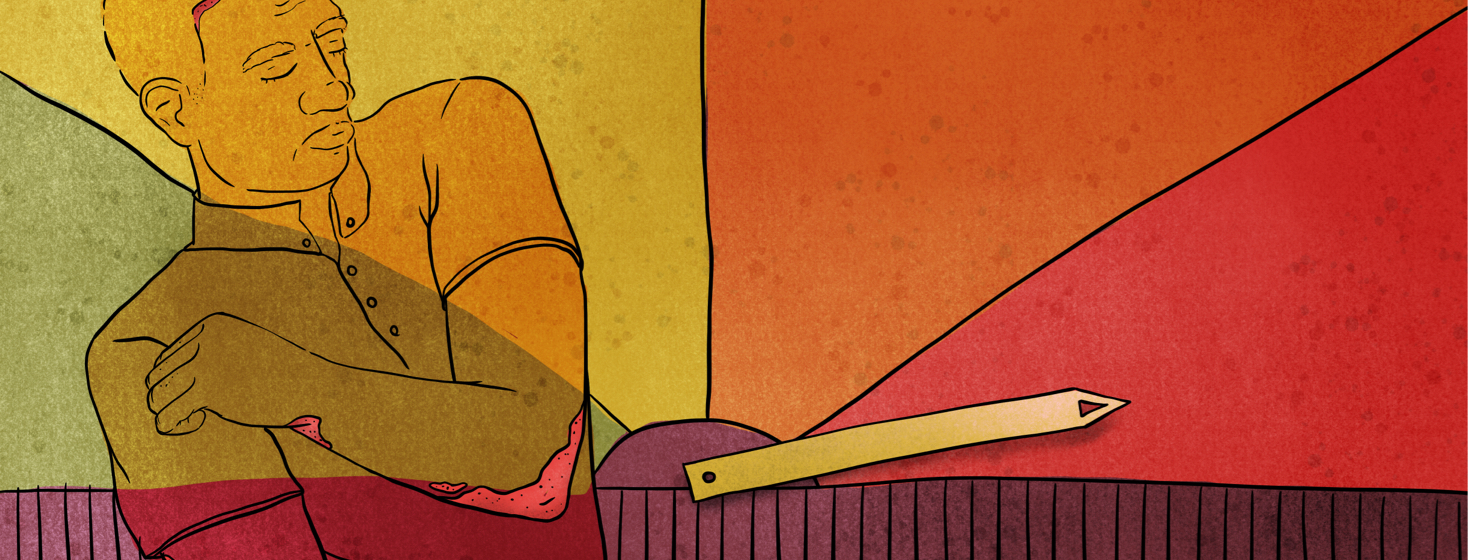What Makes Psoriasis Severe?
Experts think as many as 20 percent of all people with psoriasis have a moderate to severe form of the condition. Learning more about the severity of your psoriasis can help you and your doctor come up with a treatment plan that will ease your symptoms.1
Is my psoriasis severe?
You might be wondering if your psoriasis is mild, moderate, or severe. Here are a few clues:1-5
Coverage: If psoriasis covers 5 percent or more of your body, it is moderate to severe. A quick measurement tip: the size of your hand equals about 1 percent.
Location: Moderate to severe eczema tends to flare up in hard-to-treat areas of your body like your scalp, face, nails, palms, soles, and nails.
Symptoms: What do your lesions look like? If they are especially thick, red, or scaly, then your psoriasis is likely severe.
Quality of life: Does your condition seriously impact your day-to-day life? Think about your physical and mental health.
Psoriasis Area and Severity Index (PASI) Score
Doctors and researchers use the PASI scoring system to figure out whether psoriasis is mild, moderate, or severe. They look at how serious your symptoms are and how much of your body psoriasis covers in 4 areas: head, torso, arms, and legs. Scores can range from 0 to 72, with a score of 10 or more signaling moderate to severe psoriasis.5
Experts may also use other measures to determine the severity of psoriasis and how it impacts your life:6,7
Psoriasis Index of Quality of Life (PSORIQoL): This tool measures the quality of life with psoriasis based on things like sleep, self-confidence, social life, and intimacy.
Psoriasis Life Stress Inventory (PLSI): This 15-item questionnaire rates the stress linked to living with psoriasis. Scores range from 0 to 45, with a score higher than 10 equaling more severe psoriasis.
Psoriasis Disability Index (PDI): The PDI is a 15-item scale that looks at disability in daily activities, employment, personal relationships, free time, and the impact of treatment.
Doctors can use all of this information to help diagnose and treat severe psoriasis.
Treating severe psoriasis
Your psoriasis treatment plan will depend on the type you have, how severe it is, and how quickly it has responded to treatment in the past. There are 4 common treatments for people with psoriasis:8
- Topicals, which are medicines applied to the skin
- Phototherapy or light therapy, which involves regularly exposing the skin to UV light with the help of a medical professional
- Systemics, which prescription drugs like biologics and oral treatments
- Complementary and integrative medicine, such as diet and nutrition, exercise, mind-body practices, and acupuncture
Light therapy is a standard treatment for moderate to severe psoriasis. You may use it alone or with medicine. Types include:9
- Sunlight (also called heliotherapy)
- UVB broadband
- UVB narrowband
- Psoralen plus ultraviolet A (PUVA)
- Excimer laser
If you have moderate to severe psoriasis, another treatment option is oral or injected drugs (systemics), such as:
- Steroids
- Retinoids
- Methotrexate
- Cyclosporine
- Biologics
You can also take these drugs when other treatments have not worked. Systemics can cause serious side effects, so you will only take them for a short time.
Keep in mind that even with treatment, psoriasis usually comes back. Your doctor will likely start with milder treatments and move up to stronger ones if needed. They may also suggest different drugs or a mix of treatments before you find one that works well. Talk to your doctor about what drugs and treatments are right for you.

Join the conversation